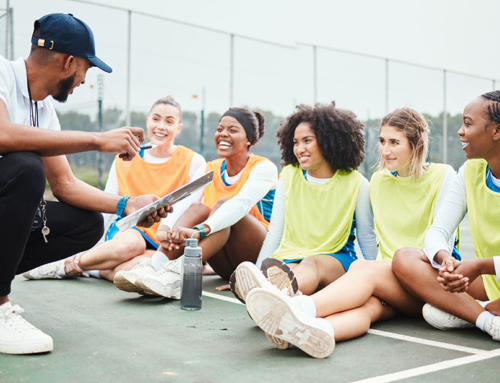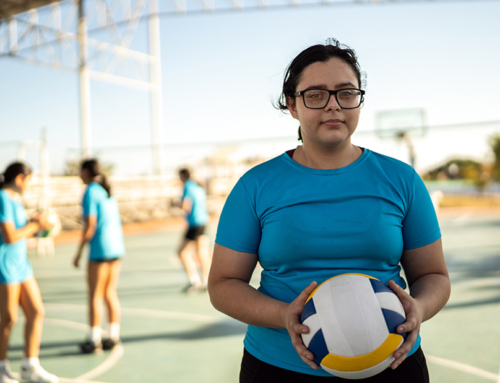For any coach, keeping athletes focused during practices or in the weight room can be challenging – especially when their minds are on an upcoming competition.
Here are some helpful tips for getting young athletes to actually train on their own, without being compelled. It’s about reinforcing the notion “practice makes perfect” – so on game day, athletes are game-ready to perform at their best.
Be Creative, Mix It Up
Having athletes do the same warmup, practice drills, and exercise routines can become too routine and boring. Instead, keep athletes guessing providing unexpected, interesting, and diverse practices and introducing new weight room exercises each week.
For example, write several various practice drills and weight training exercises on index cards. Distribute them to each team member. Have each athlete select at least five drills/exercises from a list of 10 or 15 he or she wants to perform on a given day.
For subsequent practices or weight room sessions, make them pick other drills/exercises from the list so they’re not always repeating the same movements. By doing so, athletes feel in charge of their own workouts or practices without coaches constantly telling them what to do.
Add Music
Have athletes choose their own background exercise music when training, or allow them to work out while listening to their favorite music on headphones. Athletes may train harder, and more effectively and efficiently while hearing the accompanying beat of a song.
Player-led Workouts
By appointing someone new, it keeps each player “on their toes” since anyone can be randomly chosen to lead the team on a particular day. It’s another tip to keep workouts and practices more interesting so athletes are more receptive to independent training.
Rather than having each athlete individually train, have them work out with a partner or in small groups of three to five on the practice field. Pairing athletes in the weight room is especially productive:
- Spot each other during lifts
- Encourage each other through the tougher reps
Research Pro Athlete Workout Plans
Googling how Cristiano Ronaldo or Tom Brady work on their bodies can motivate younger athletes. While researching the pro athlete, they may learn how their favorite pro prioritizes nutrition, getting adequate sleep, regularly stretching and exercising, and putting in extra practice time to gain an edge.
Film Study
Learning how to get the upper hand on a wrestling opponent, or when facing a top softball pitcher, or defending against a speedy wide receiver should be ample motivation for athletes to practice skills on their own before competing.
For instance, staying after practice to master a particular wrestling maneuver can be the difference in defeating a state champ in the next match. And perhaps the best inspirational practice tool is for athletes to review why they lost to the same opponent in a previous game, and correct those mistakes for next time.
Self-scouting
Privately discussing each team member’s strengths and weaknesses can be a valuable lesson towards getting them to address these performance elements on their own during practices or weight room visits. Perhaps they need to increase their speed on the bases going from first to third or get stronger to block football opponents.
If an athlete feels jittery before games or tense, suggest they do deep breathing exercises and stretch to get loose so they’ll perform better. Recommend devoting extra practice time on the basketball court to free-throw accuracy; punting distance and accuracy on the football field; or kicking precision in soccer.
In other words, before thinking about the opponent, focus on your own flaws as an athlete and fix them first.
Original article posted on stack.com
Read More:



